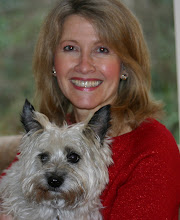
I saw the onion goggles hanging on a display in the produce section of the grocery store. They promised maximum clarity and protection and would keep you from crying when you chop onions. But I saw them as potentially perfect bicycling glasses.
And I was right! When I arrived at work the next morning, my eyes weren’t teary and bloodshot. I was thrilled!
But a colleague asked, “Well, now what are you going to do when you chop onions?”
“Cry,” I answered, “And pray.”
I have always rejected any attempts to protect myself from onion tears—chopping them under water, burning candles or matches, freezing the onions before cutting. I don’t want to avoid the tears because I use that time to tap in to the pain of the world.
I imagine all the people on the planet besides myself, who are crying right at that moment. And as I chop, I cry in solidarity with them. I open myself to take on a little of their spiritual pain and I lift them up. I lift them up. This means I don’t pray anything specifically, I simply see all those crying eyes surrounded by a healing light.
So the other night as I chopped onions to sauté with my Swiss chard, I prayed for the people killed and injured by the cyclone in Myanmar. I lifted up the people running their military junta who are refusing—refusing!—international relief efforts.
I cried and prayed for the families in China who are suddenly homeless; whose children have had limbs amputated, whose loved ones were crushed to death.
I wept in awe at the woman who after days of being trapped, told her husband, “We must stay alive. There is a reason that we are spared.” Such strength and wisdom in the midst of so much pain.
My tears were also about the kindness, the generosity of international medical teams who are there struggling to provide care—in a foreign country. And suddenly I stopped praying in general terms.
I imagined myself there unable to speak Chinese. It wasn’t the goggles that gave me maximum clarity, it was my tears. So I prayed for the aid workers, that their lack of language skills would be supplanted by their ability to speak the language of love and compassion.
I prayed that they would have new reserves of patience, wisdom and understanding. I prayed that their hands would be strong and sure and gentle.
Ats we ate, my husband and I talked about these world disasters. At the end of dinner, he turned to me and said, “I loved the chard, but it was a little heavy on the onions.”




